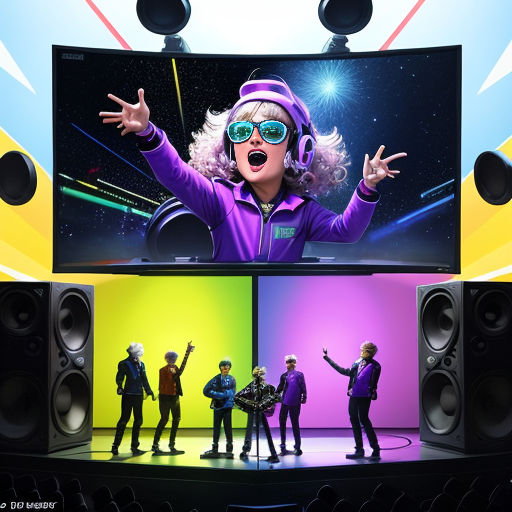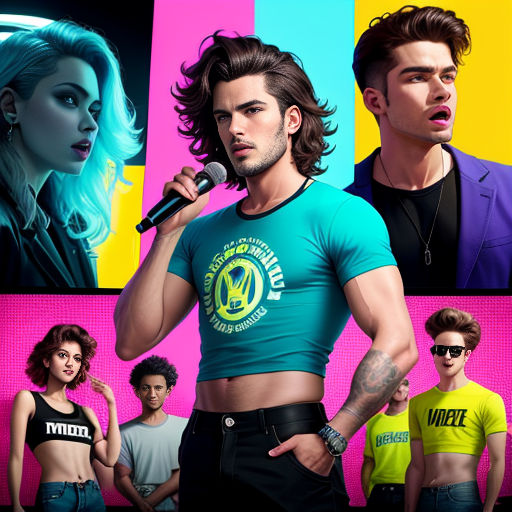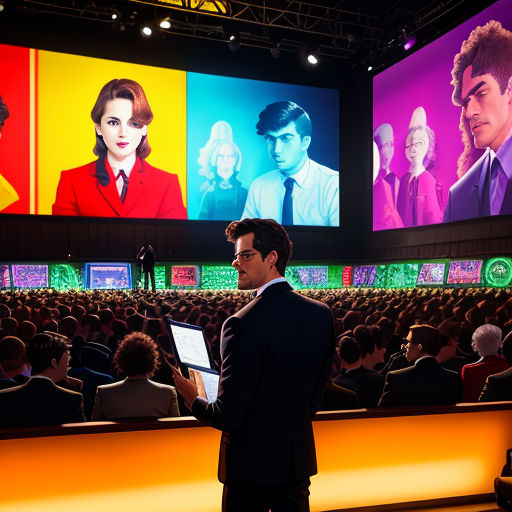
The Rise of MTV Networks
By Andy

30 Aug, 2023

It was the late 1970s, and across America, the music scene was transforming. Rock 'n' Roll, Pop, and Disco were ruling the charts. But the way people consumed music was lacking a crucial visual component.

In a boardroom in New York City, a group of executives from Warner-Amex Satellite Entertainment were brainstorming ways to revolutionize the music industry. Among them was Robert Pittman, a young and energetic visionary.

Pittman dreamt of a cable network that combined music with television, creating a new form of entertainment. He envisioned a platform where music videos from various artists could reach millions of homes.

In August 1981, this vision became a reality when Music Television, or MTV as it was called, was launched. It was a groundbreaking concept, neither fully radio nor TV, but a fusion of both.

The first music video aired on MTV was "Video Killed the Radio Star" by The Buggles, a fitting metaphor for the revolutionary change MTV was about to bring to the music industry.

As the 1980s progressed, MTV became the defining cultural phenomenon of the era. It was more than just a cable network; it was a platform that set fashion trends, shaped pop culture, and gave a voice to the youth.

MTV provided artists with a global stage to showcase their talent. It gave a visual representation to music, making it a more immersive experience for the audience.

Soon, MTV diversified into genres other than music, introducing reality shows, news, and special events coverage. This new content brought in a wider audience and increased their commercial success.

One of the popular shows introduced was "MTV Unplugged." It featured artists performing acoustic sets, providing an intimate and alternative approach to their electric counterparts.

Meanwhile, the channel continued to evolve with the culture of its viewers, creating iconic campaigns like "Rock the Vote," which encouraged young people to exercise their voting rights.

With success came expansion, and MTV Networks was formed. It became a group of cable networks, each targeting a specific demographic with curated content.

The network added channels like VH1, for older fans of softer music; Nickelodeon, for kids; and Comedy Central, for a mature audience interested in comedy.

MTV's global expansion was also successful. The network was introduced to Europe, Asia, Australia, and Latin America, making MTV a global brand.

In the late 1990s, MTV faced its first major challenge from the internet. However, instead of succumbing to the competition, MTV adapted and expanded its digital presence.

They developed an online platform where users could watch music videos, read news, and interact with their favorite artists. This move ensured MTV's relevance in the changing media landscape.

Into the new millennium, MTV continued to innovate and diversify its content. It introduced reality TV shows like "The Real World" and "Jersey Shore," which became cultural phenomena.

Despite criticisms over content and reduced music video playtime, MTV remained a trendsetter, influencing pop culture, fashion, and the music industry.

Robert Pittman, the man who started it all, left the network in the late 90s but his vision continued to guide MTV's journey.

Today, MTV Networks is a juggernaut in the entertainment industry. With hundreds of millions of viewers worldwide, it continues to shape global culture through music, reality television, and youth-oriented programming.

Over the years, MTV has played a key role in providing a platform for new artists and fresh music genres. It has remained a powerful force in the evolving landscape of music consumption.

The story of MTV is a lesson in innovation, adaptation, and the power of visual storytelling. Despite many changes over the years, it has remained true to its original vision of fusing music with television.

MTV's journey demonstrates how an idea, fueled by understanding of the audience's needs and desires, can usher in a cultural revolution. It's a testament to vision, perseverance, and innovative spirit.

As MTV looks ahead, it continues to be a platform for music artists to express their art. It remains a beacon for the youth, reflecting their culture, their interests, and their ideals.

From the day it first hit the airwaves, MTV has been a cultural icon. It has proved that innovation and staying relevant are essential for success in the ever-changing world of entertainment.

The rise of MTV Networks did not just redefine music; it reshaped television and left an indelible mark on pop culture. The network continues to evolve, grow and reinvent itself, true to the spirit of its inception.